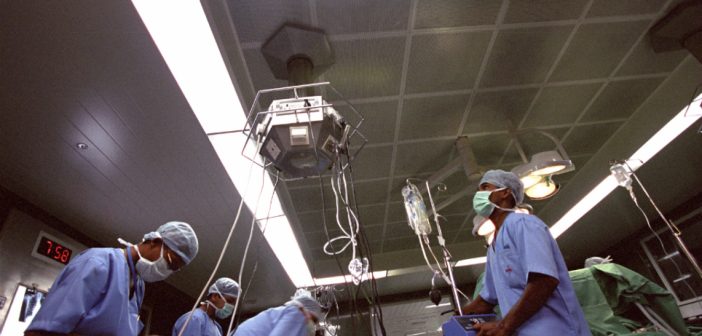India, a nation witnessing rapid economic growth, faces a growing challenge – the escalating cost of healthcare. Hospital bills are skyrocketing, pushing medical treatment beyond the reach of many citizens. This article delves into the reasons behind this concerning trend and explores its impact on individuals and the healthcare system as a whole.
A Multifaceted Problem: A Cocktail of Factors Driving Up Costs
The rise in healthcare costs isn’t attributable to a single factor; it’s a complex issue fueled by a confluence of forces:
- Technological Advancements: The adoption of advanced medical technologies like robotics, minimally invasive surgeries, and sophisticated diagnostic tools has undeniably improved the quality of healthcare. However, these advancements come at a premium. The cost of acquiring, maintaining, and operating this equipment is significant, ultimately reflected in patient bills.
- Inflation in Medical Supplies: The cost of essential medical supplies, pharmaceuticals, and consumables has been steadily rising. This can be attributed to factors like global fluctuations in raw material prices, import duties, and the increasing demand for specialized drugs.
- Rising Doctor Fees: The fees charged by doctors, specialists, and surgeons have witnessed a significant upward trend. This can be partially explained by the growing demand for specialized healthcare services and a perceived shortage of qualified medical professionals in certain fields. Additionally, the rise in malpractice insurance premiums can also be a factor.
- Profit Margins of Hospitals: Private hospitals, driven by profit motives, often set high markups on services and procedures. This can inflate the overall cost of treatment, particularly for those who lack comprehensive health insurance coverage.
- Lack of Regulation: The absence of robust price regulation mechanisms for medical services and procedures allows private healthcare providers to set their own prices, potentially leading to exploitation and profiteering.
The Human Cost: Struggles and Sacrifices
The rising cost of healthcare has a profound impact on ordinary citizens. Here’s a closer look at the human cost of this escalating burden:
- Medical Debt Burden: Many families are forced to take on crippling medical debt to cover hospitalization costs. This can lead to financial hardship, impacting savings, education, and overall well-being.
- Delayed or Foregone Treatment: Due to the fear of exorbitant bills, many individuals delay or forego seeking necessary medical treatment. This can lead to complications, worsen existing health conditions, and ultimately result in higher costs down the line.
- Increased Poverty: Medical expenses can push families below the poverty line, jeopardizing their access to basic necessities like food and shelter.
- Mental Stress: The financial burden of healthcare can be a significant source of stress and anxiety. This can further exacerbate existing health problems and negatively impact overall quality of life.
The Ripple Effect: A Strain on the Healthcare System
The rising cost of healthcare doesn’t just affect individuals; it also puts a strain on the healthcare system as a whole:
- Out-of-Pocket Expenditure: A significant portion of healthcare expenditure in India is out-of-pocket, meaning individuals have to pay directly for their treatment. This puts a strain on public healthcare finances, as the government has fewer resources to invest in public hospitals and infrastructure.
- Limited Public Healthcare Capacity: Public healthcare facilities, while offering subsidized services, are often overburdened and under-resourced. This can lead to long wait times, limited access to specialists, and a lack of essential equipment.
- Focus on Curative over Preventive Care: The high cost of treatment incentivizes a curative approach to healthcare, focusing on treating established illnesses rather than preventative measures. This can lead to long-term health issues and even higher costs in the future.
Seeking Solutions: A Roadmap for Affordable Healthcare
Addressing the rising cost of healthcare requires a multi-pronged approach:
- Insurance Penetration: Increasing health insurance penetration is crucial. Government initiatives and awareness campaigns can encourage more people to opt for health insurance plans, mitigating the financial burden of hospitalization.
- Price Regulation: Implementing price caps or regulatory frameworks for medical services and procedures can help prevent exploitation by private healthcare providers.
- Investment in Public Healthcare: Increased government investment in public hospitals and infrastructure can improve access to affordable and quality healthcare services, particularly for the underprivileged.
- Telemedicine and Remote Healthcare: Promoting the use of telemedicine and remote healthcare services can provide access to specialist consultations and basic medical care in remote areas.
- Focus on Preventive Care: Promoting preventive healthcare initiatives like regular checkups, vaccinations, and healthy lifestyle choices can help identify and address health concerns at early stages, preventing costly interventions later.
Conclusion: A Collective Effort for a Healthy Future
The rising cost of healthcare in India is a critical issue that demands immediate attention. It’s not just about ensuring affordability; it’s about guaranteeing the right to health for all citizens. By implementing comprehensive solutions, promoting preventative care, and fostering a collaborative effort between government, healthcare providers, and the public, India can build a more sustainable and equitable healthcare system. This system should aim to provide high-quality treatment at a reasonable cost, ensuring that financial constraints don’t become a barrier to good health. A healthy nation is a productive nation, and by tackling the challenge of rising healthcare costs, India can pave the way for a healthier future for its citizens and a more robust economy overall.






